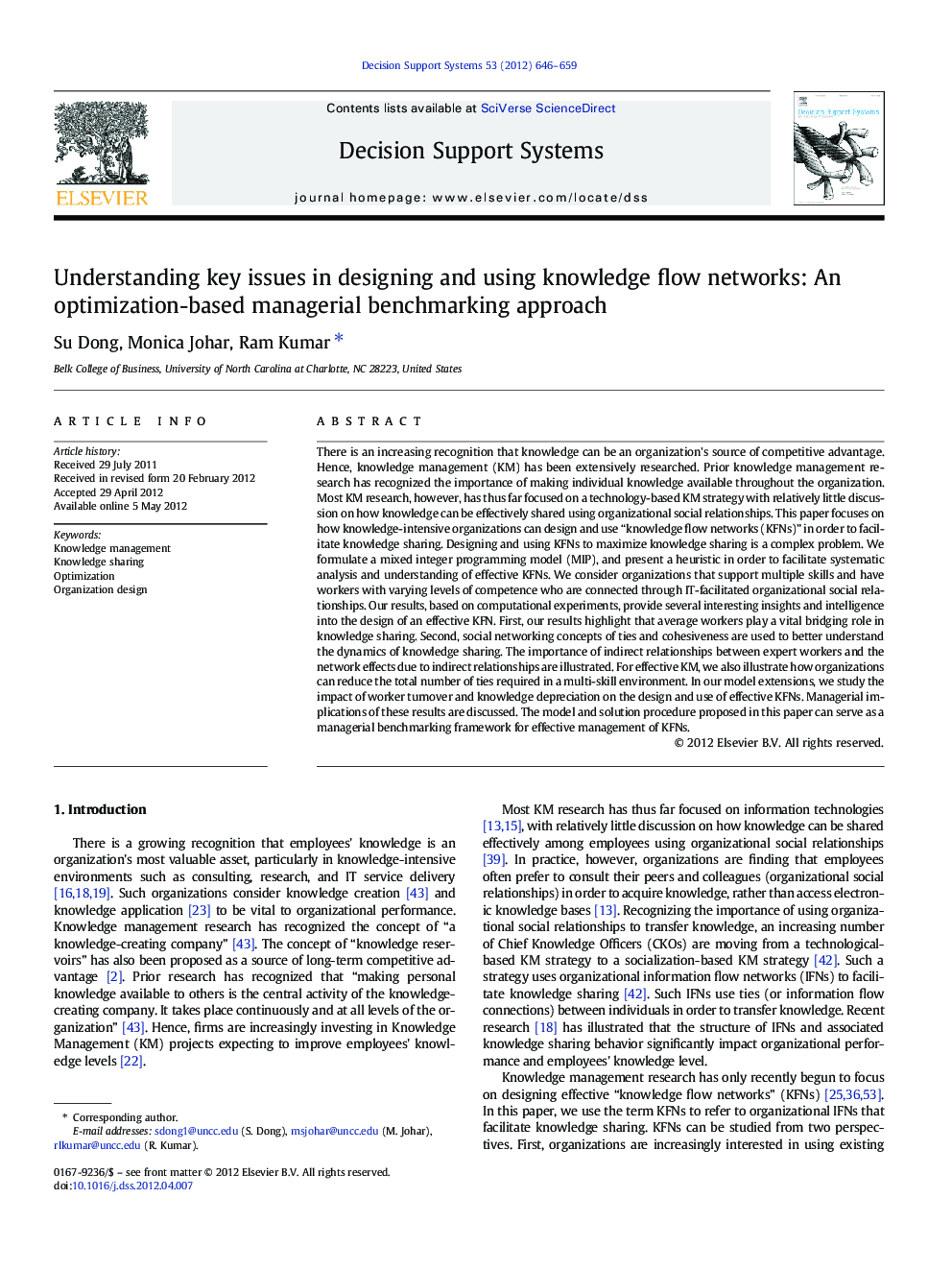| کد مقاله | کد نشریه | سال انتشار | مقاله انگلیسی | نسخه تمام متن |
|---|---|---|---|---|
| 554768 | 873879 | 2012 | 14 صفحه PDF | دانلود رایگان |

There is an increasing recognition that knowledge can be an organization's source of competitive advantage. Hence, knowledge management (KM) has been extensively researched. Prior knowledge management research has recognized the importance of making individual knowledge available throughout the organization. Most KM research, however, has thus far focused on a technology-based KM strategy with relatively little discussion on how knowledge can be effectively shared using organizational social relationships. This paper focuses on how knowledge-intensive organizations can design and use “knowledge flow networks (KFNs)” in order to facilitate knowledge sharing. Designing and using KFNs to maximize knowledge sharing is a complex problem. We formulate a mixed integer programming model (MIP), and present a heuristic in order to facilitate systematic analysis and understanding of effective KFNs. We consider organizations that support multiple skills and have workers with varying levels of competence who are connected through IT-facilitated organizational social relationships. Our results, based on computational experiments, provide several interesting insights and intelligence into the design of an effective KFN. First, our results highlight that average workers play a vital bridging role in knowledge sharing. Second, social networking concepts of ties and cohesiveness are used to better understand the dynamics of knowledge sharing. The importance of indirect relationships between expert workers and the network effects due to indirect relationships are illustrated. For effective KM, we also illustrate how organizations can reduce the total number of ties required in a multi-skill environment. In our model extensions, we study the impact of worker turnover and knowledge depreciation on the design and use of effective KFNs. Managerial implications of these results are discussed. The model and solution procedure proposed in this paper can serve as a managerial benchmarking framework for effective management of KFNs.
► Organizational design to facilitate knowledge sharing is under researched.
► We integrate research on knowledge management and social networking.
► Indirect relationships and average workers facilitate knowledge sharing.
► Cohesive groups of experts and incremental knowledge sharing are important.
► Provides managerial guidance for design and use of knowledge flow networks.
Journal: Decision Support Systems - Volume 53, Issue 3, June 2012, Pages 646–659